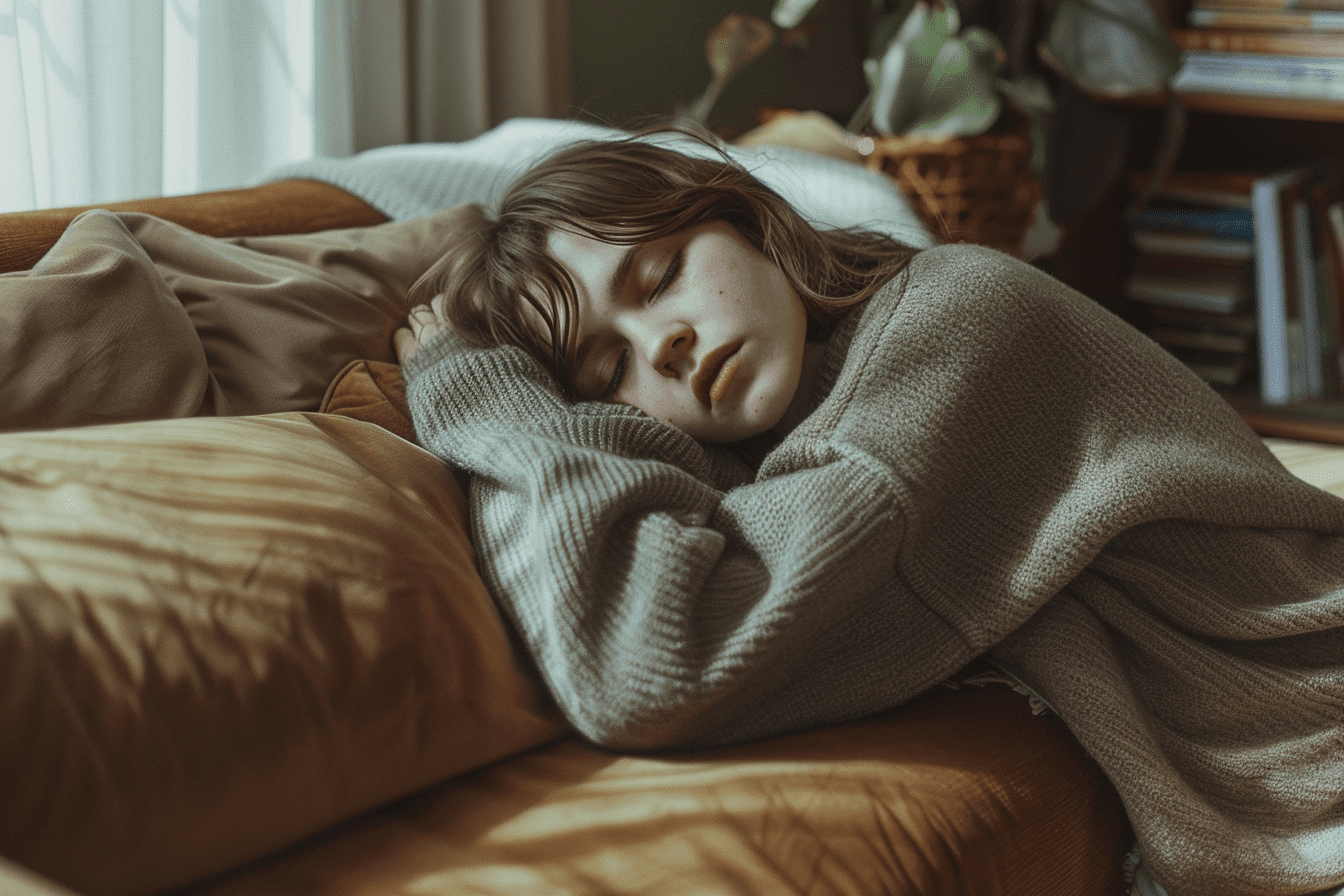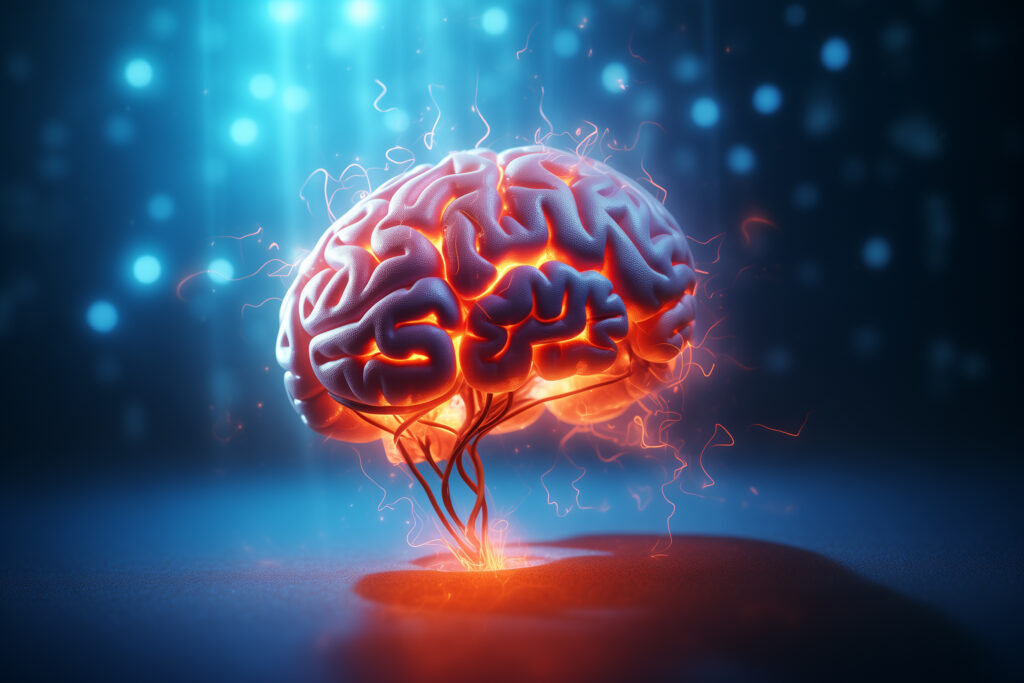
Signs of Sleep Deprivation: Symptoms You Shouldn’t Ignore
From fatigue to cognitive decline, know the symptoms of sleep deprivation and how to address them for better sleep health

How to know if you’re sleep deprived—and what to do about it
Are you feeling tired today? And if so, how tired are we talking exactly? Research has shown around one third of Americans aren’t getting enough shut-eye, so if you think you’re in that group, you’d better read on.
It’s a normal part of life to feel sleepy in the evenings, and to sometimes feel weary after taxing or stressful experiences. If you’ve just eaten a heavy meal, you also may feel like having a lie-down while you digest. Likewise, it’s usual to go through occasional phases of not sleeping well, for example if we’re stressed about a new job or a romantic situation. All of these would count as temporary episodes of tiredness.
Longer-term sleep deprivation, however, is an entirely different thing—and it can lead to much bigger problems than just feeling tired.
If you regularly fail to get the amount of sleep you need, you’ll have more serious problems on your hands than simply needing to get an early night tonight. As we’ll describe in this article, consistent lack of sleep can lead to significant health and wellness issues that may have a permanent effect on your wellbeing.
In this article, we’ll look at the main sleep deficiency symptoms and provide insights on how you can improve your sleep for better overall health.
How Much Sleep Do I Need?
- Most adults need 7-9 hours’ sleep per 24-hour period
- Some adults can be healthy and happy with as little as 6 hours per night, while others may need up to 10
- Pregnant women need several hours more sleep during the first trimester
- People aged 65+ only need 7-8 hours on average per night
What is Sleep Deprivation?
Sleep deprivation is used to describe a state where you’ve not had a sufficient amount of sleep to feel awake and alert. Being sleep deprived can affect pretty much every aspect of daily life, with the most obvious symptoms being a low mood and general feeling of grogginess.
Unfortunately, when the sleep deficiency builds up, bigger problems begin to emerge—such as inability to make decisions and drive safely, and forgetting important things.
Why Do We Need Sleep?
We know sleep is necessary, but why? Scientists can’t agree on the exact reasons we need sleep, but these are some of the theories they’ve come up with:
- Energy conservation
- Cellular restoration
- Brain function
- Emotional well-being
- Weight maintenance
- Proper insulin function
- Immunity
- Heart health
Common Symptoms of Sleep Deprivation
We can divide sleep deprivation symptoms into three main categories, as follows:
Physical Symptoms
The physical manifestations of being sleep deprived may be immediate and obvious, or they could be insidious and eventually affect your long-term health.
Constant Tiredness and Sluggishness
We’re not talking about feeling a bit drowsy late at night—this is when you experience a pervasive lethargy that affects your ability to engage in regular everyday activities. It’s like a heavy blanket of fatigue is dulling your physical responses and slowing your movements, so that even simple tasks like making a cup of coffee feel laborious.
Compromised Immune System
If you’re lacking in sleep over a sustained period, it’s likely your immune defense will suffer. You may find yourself picking up common colds, the flu, and other infections, or perhaps you develop symptoms like mouth ulcers, styes, and skin rashes. Dry, irritated eyes become more common as your body becomes less effective at fighting off invaders.
Inability to Regulate Body Temperature
You know when you feel strangely cold in a warm room, even though you’re wearing several layers—and everybody else is comfortable? Perhaps you’re shivering and feel a kind of chill in your bones, and cannot get warm despite what you do? Sleep deprivation can disrupt the body's thermoregulation processes, leading to feeling cold irrespective of the ambient temperature.
Weight Gain
When you’re sleep deprived, your hormones will be out of balance which can lead to feeling hungrier. And the foods you’ll crave? It’s those high-calorie, sugary, carby items that will provide your body with the energy it’s so desperately needing—you guessed it, the cakes, chocolates, and chips. Don’t beat yourself up over the fact you’re hankering after unhealthy foods—this is a physiological response to hormonal changes such as higher levels of ghrelin (which regulates hunger) and lower levels of leptin (which regulates the feeling of fullness).
Cognitive Symptoms
The brain is perhaps the organ most affected by sleep deprivation. When you’re not getting enough sleep, numerous cognitive functions will be compromised. Let’s take a look.
Difficulty Focusing and Short Attention Span
When your brain needs rest, you’ll find it practically impossible to concentrate and stay focused on the task at hand. It’s a bit like trying to catch a signal with a faulty antenna—the information gets lost, things take significantly longer, and it’s impossible to get anything done.
Memory Problems
If you’re sleep deprived, you may experience issues with both your short-term and long-term memory. Perhaps you’re forgetting instructions you’ve been given seconds ago, or maybe you’re finding it hard to remember appointments and take in new information, or recall past events.
Poor Judgment and Difficulty Making Decisions
Without enough rest, it’s harder to assess situations, make decisions, and understand consequences. You may find yourself making poor judgment calls in personal or professional contexts as your brain struggles to weigh options. Research has shown that just one night of sleep deprivation significantly impairs the brain’s ability to assess win and loss outcomes during decision making.
Emotional Symptoms
As well as making us feel physically tired and cognitively sluggish, sleep deprivation also takes a toll on our emotional health.
Increased Irritability and Mood Swings
Feeling irritable is often one of the first signs people notice when they’re sleep deficient. When you need a good night’s sleep, little annoyances can start to feel completely intolerable, causing you to have more intense emotional reactions. These may often feel totally inappropriate to the situation, and others may comment that you’re overreacting.
Failure to Process Emotional Information
Reading and responding to everyday emotional cues takes up brain energy. It follows that if your brain has not had enough rest, you may misinterpret things others say and do. Unfortunately, this can sometimes put a strain on friendships, work interactions, and romantic relationships.
Greater Risk of Developing Mental Health Issues
Prolonged sleep deprivation puts you at a much higher risk for developing mental health issues such as depression and even suicide. Why? Because the sleep deficiency is putting constant strain on your ability to regulate emotionally, causing increased stress levels that can exacerbate or trigger such conditions.
Recognizing Your Own Sleep Needs
Getting to know your own sleep needs is a fundamental part of ensuring you get restorative and restful sleep and stay in good health. Your individual sleep patterns and requirements can vary significantly from your partner’s or child’s, since they depend on a number of factors including age, lifestyle, and health condition.
Sleep monitoring technology is an effective way of learning more about your sleep needs and making tweaks that improve your sleep health. Apps like Pillow can provide a sophisticated analysis of your sleep patterns, and tell you exactly how much sleep you got—and how restful it was.
By examining sleep cycles and disturbances, Pillow can provide personalized insights to help you with identifying insomnia episodes. Frequent awakenings, light sleep, or irregular sleep schedules are all useful to know about when analyzing your own sleep habits.
FAQ
Could sleep deprivation be making it harder to focus and complete tasks?
Yes, sleep deprivation can make it difficult to focus, stay productive, and complete tasks efficiently. Lack of sleep impairs cognitive functions such as concentration, memory, and problem-solving, making work feel overwhelming and harder to manage. It also reduces motivation and energy levels, leading to procrastination and a sense of mental exhaustion, even for simple tasks.
Could my lack of motivation and energy be due to sleep deprivation?
Absolutely. Sleep deprivation affects the body's ability to regulate hormones like dopamine and cortisol, which influence motivation and energy levels. Without sufficient rest, you may feel sluggish, unmotivated, and persistently fatigued. Over time, chronic sleep loss can contribute to burnout and reduced enthusiasm for daily activities.
Could sleep deprivation affect my relationship?
Yes, lack of sleep can make you irritable, impatient, and emotionally reactive, leading to misunderstandings and conflicts. It also reduces your ability to empathize and communicate effectively, making it harder to connect with others. Over time, sleep deprivation can strain relationships by increasing tension and lowering the quality of interactions.
Can sleep deprivation lead to microsleep episodes?
Yes, sleep-deprived individuals are prone to microsleep episodes—brief moments of involuntary sleep lasting a few seconds. These episodes can occur during daily activities and are especially dangerous while driving or operating machinery, as they increase the risk of accidents.
How does sleep deprivation affect driving ability?
Driving while sleep-deprived can be as dangerous as driving under the influence of alcohol. It impairs reaction times, attention, and decision-making, significantly increasing the risk of accidents and making it difficult to stay alert and focused on the road.
Can sleep deprivation impact skin health?
Yes, insufficient sleep can harm skin health by causing dehydration, increasing signs of aging like wrinkles, and exacerbating conditions such as acne. Sleep is crucial for skin cell repair and renewal, and lack of rest can lead to a dull complexion and slower healing of blemishes or irritations.
Can sleep deprivation cause hallucinations?
Yes, extreme sleep deprivation (lasting three days or more) can cause hallucinations, paranoia, and a distorted sense of reality. The brain struggles to process sensory input accurately, leading to visual, auditory, or tactile hallucinations and confusion in perceiving the environment.
Are there unusual side effects of sleep deprivation?
Yes, sleep deprivation can cause unexpected side effects such as heightened sensitivity to pain, digestive issues, and mood swings. It can also lead to impaired speech, trembling hands, and increased cravings for unhealthy foods due to hormonal imbalances and impaired cognitive functioning.
Is there a link between sleep deprivation and weight gain?
Yes, sleep deprivation disrupts hormones that control hunger, such as ghrelin and leptin, leading to increased appetite and cravings for high-calorie foods. This imbalance can contribute to weight gain and an increased risk of obesity, as sleep loss affects metabolism and food choices.
Is there a genetic component to how people handle sleep deprivation?
Yes, genetics play a role in how individuals tolerate sleep deprivation. Some people have genetic variations that allow them to function better with less sleep, while others experience cognitive decline, mood disturbances, and health issues even after mild sleep deprivation.

Written by
Georgia Austin
Professionally trained copywriter, editor, and content marketing strategist with over 7 years of experience—working with brands like Nike, Siemens, Toshiba, Tommy Hilfiger, Culture Trip, and Klook.
Download Pillow
Get help
Press & News
Legal
Connect
X (Twitter)
Company
Copyright © Neybox Digital Ltd.



